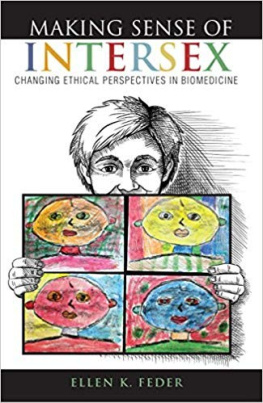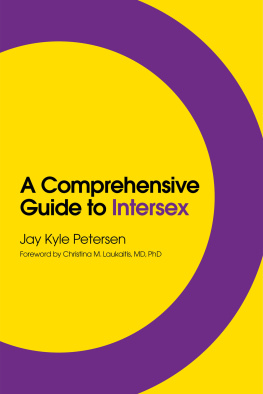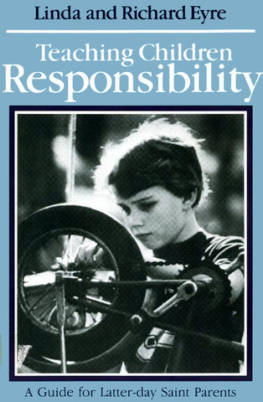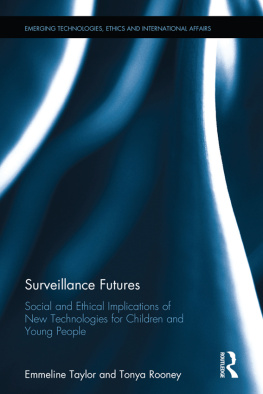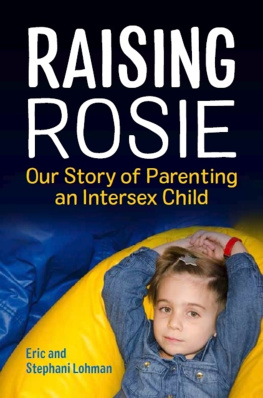Ellen K. Feder - Making Sense of Intersex: Changing Ethical Perspectives in Biomedicine
Here you can read online Ellen K. Feder - Making Sense of Intersex: Changing Ethical Perspectives in Biomedicine full text of the book (entire story) in english for free. Download pdf and epub, get meaning, cover and reviews about this ebook. year: 2014, publisher: Indiana University Press, genre: Home and family. Description of the work, (preface) as well as reviews are available. Best literature library LitArk.com created for fans of good reading and offers a wide selection of genres:
Romance novel
Science fiction
Adventure
Detective
Science
History
Home and family
Prose
Art
Politics
Computer
Non-fiction
Religion
Business
Children
Humor
Choose a favorite category and find really read worthwhile books. Enjoy immersion in the world of imagination, feel the emotions of the characters or learn something new for yourself, make an fascinating discovery.
- Book:Making Sense of Intersex: Changing Ethical Perspectives in Biomedicine
- Author:
- Publisher:Indiana University Press
- Genre:
- Year:2014
- Rating:3 / 5
- Favourites:Add to favourites
- Your mark:
Making Sense of Intersex: Changing Ethical Perspectives in Biomedicine: summary, description and annotation
We offer to read an annotation, description, summary or preface (depends on what the author of the book "Making Sense of Intersex: Changing Ethical Perspectives in Biomedicine" wrote himself). If you haven't found the necessary information about the book — write in the comments, we will try to find it.
Putting the ethical tools of philosophy to work, Ellen K. Feder seeks to clarify how we should understand the problem of intersex. Adults often report that medical interventions they underwent as children to correct atypical sex anatomies caused them physical and psychological harm. Proposing a philosophical framework for the treatment of children with intersex conditionsone that acknowledges the intertwined identities of parents, children, and their doctorsFeder presents a persuasive moral argument for collective responsibility to these children and their families.
**
ReviewIs a work of philosophy capable of bringing insightful new perspectives or illuminating and forceful arguments to an urgent social matter so as truly to effect a felt change in the lives of people concerned by it? Feders book is capable of this effect. As such, it takes the risk of calling forth a new public, or a new readership, and so is a work whose appeal could well be ahead of its time. But its time should be here. (International Journal of Feminist Approaches to Bioethics)
Making Sense of Intersex is an impressive call for change. As such it is in conversation with intersex activist and scholarly work. (philoSOPHIA)
Rich with cross-discipline potential, Feders engaging argument should provide a new approach for doctors and parents caring for children with atypical sex anatomy. (Publishers Weekly (Starred Review))
Feders book is a welcome injection of new ideas into feminist scholarship on intersex, post-Consensus Statement era. (Womens Review of Books)
Making Sense of Intersex significantly enhances our understanding of intersex and the ethical issues involved in medical practice more generally. (Kennedy Institute of Ethics Journal)
ReviewFeders exploration of the ethics of intersex treatment is a cautionary tale for health care providers and families. Her analysis highlights serious deficiencies in the contemporary process of informed consent. As a physician, mother of adults with atypical sex, and moderator of a family support group, I strongly urge clinicians involved in the care of these children to read this book . Feder makes it clear that the prevailing model of decision-making for irreversible treatments such as surgery and hormonal therapy relies on the flawed premise that these treatments will prevent harm to children and families despite evidence that they actually cause harm. Assuming that information overload will paralyze anxious families, physicians fail to provide balanced education on long-term effects. In dismissing input from the ultimate experts, patients with lived experience of lasting physical and emotional trauma, clinicians neglect their primary moral obligation to vulnerable families. By the time parents learn of their childs right to sexual integrity, physical change is irrevocable. It is too late to restore the original outer self integral to the core sense of being whole that lets a child engage with the world, love and be loved. (Arlene Baratz Medical Advisor, AIS-DSD Support Group)
Just when you thought nothing more could be added to intersex scholarship, Ellen Feder, a compassionate philosopher, uses the tools of her discipline to expand our understanding. Drawing on chilling stories of the treatment of children with Disorders of Sexual Differentiation, she tackles questions like: What constitutes good medical care? Why are childrens needs subverted? What underlies the compelling appeal of normality and aversion to intersexuality? (Suzanne Kessler Lessons from the Intersexed)
Linking the problems raised by treatment of the intersexed to problems that are endemic to the field of bioethics, Feder argues that, in seeing itself charged with the task of solving specific case problems, bioethics has abandoned its philosophical mission of examining the ways that these case problems are framed and neglected its philosophical obligation to critique the context within which bioethics is asked to operate. A controversial and radical conclusion, yes, but one that is skillfully defended. (Debra Bergoffen author of Contesting the Politics of Genocidal Rape: Affirming the Dignity of the Vulnerable Body)
An important book for bioethics as well as theories of gender and sexuality. A gripping narrative with clarity of purpose and ease with major philosophical approaches to ethics and sexuality. (Cynthia Willett Emory University)
In Making Sense of Intersex, Ellen K. Feder expertly employs the tools of the medical humanities to examine the thoughts, desires, and growth potential of the parents and clinicians who care for children born intersexwith sex chromosomes, hormones, or body parts that dont quite match medical standards for males or females. Rather than the usual and often misguided emphasis on gender identity development and its attendant politics, Feder focuses instead on how parents love and how clinicians care. The result is a powerfully sympathetic and deeply moving call to a better way for all of us. (Alice Dreger Northwestern University)
Ellen K. Feder: author's other books
Who wrote Making Sense of Intersex: Changing Ethical Perspectives in Biomedicine? Find out the surname, the name of the author of the book and a list of all author's works by series.

